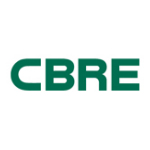“Green” Building Certifications on the Rise in Major International Markets
Canadian Markets Top CBRE’s Inaugural International Green Building
Adoption Index, Reporting Highest Percentage of “Green” Office Space
LOS ANGELES–(BUSINESS WIRE)–Major metropolitan office markets across the globe are seeing a
significant increase in the adoption of “green” building certification
programs, according to the inaugural International Green Building
Adoption Index (IGBAI) – a study by CBRE
and Maastricht
University (Netherlands). The study
reports that 18.6 percent of space in 10 markets across Australia,
Canada and Europe is now certified “green” versus just 6.4 percent in
2007.
Canadian cities set the pace, with 51.6 percent of the space in
Vancouver and 51.0 percent in Toronto holding “green” certifications.
This is particularly notable for Vancouver, as the city has a formal
initiative and action plan – “Greenest City 2020” – toward becoming the
greenest city in the world by 2020. In Vancouver and Toronto, green
building trends will continue to drive both new development and
redevelopment of office product. In Vancouver, more than half of the 1.5
million-square feet of product under development is being built to high
green certification standards, while much of Toronto’s existing class A
product is undergoing intensive capital improvement projects that
include upgrades aimed at earning green certifications as well.
Increased demand for more environmentally responsible buildings from
governments, corporate tenants and institutional investors has been
particularly evident in cities where “green” properties made up
virtually no part of the office market just a few years ago. For
instance, the Australian cities of Sydney and Melbourne, third and
fourth in the index, saw their “green” office square footage increase
from less than one percent in 2006 to more than 46 and 28.8 percent,
respectively. Additionally, Warsaw’s “green” office market was
essentially non-existent as recently as 2010, but now comprises 21.3
percent of space tracked by CBRE.
Even the markets that reported the smallest percentage of green office
space relative to their total office property inventory saw noticeable
growth. Paris, the largest market in the study, saw green building
certifications increase from 0.1 percent in 2007 to 9.1 percent in 2017;
while the second largest market, London, went from 0.2 percent in 2010
to 8.7 percent in 2017.
Similarly, Frankfurt reported 17.5 percent green product, up from 1.4
percent in 2009; Stockholm reported 12.6 percent, up from 1.2 percent in
2011; and Amsterdam reported 11 percent, up from 0.1 percent in 2011.
Green properties have outperformed the market in many of these cities.
By example:
-
In 2017, Australia’s Green Property Index figures demonstrated that on
average the total three-year annualized return for “Green Star”
six-star rated office buildings was 15.6 percent compared to a 12.8
percent total return for the remainder of the market. -
In the first nine months of 2017, a quarter of Frankfurt’s 4.6 million
square feet lease activity was in certified green buildings, including
two of the market’s largest lease deals which totaled 151,000 and
75,000 square feet, respectively.
“Buildings, particularly commercial properties, have long been at the
forefront of pressing issues like water, waste, and significant energy
use and the resultant carbon emissions,” said David
Pogue, CBRE’s Senior Vice President, Global Client
Care/Sustainability. “As the attention being paid to these issues grows,
green building certification programs are becoming much more prevalent
and more important to a variety of constituents and stakeholders.”
“Despite the presence of a wide variety of local building certification
programs, internationally recognized green building certificates tend to
be more widely adopted in the commercial real estate market. Tenants and
investors need such standardized measures of environmental performance,”
said Dr. Rogier Holtermans, project lead on the International Green
Building Adoption Index.
CBRE’s International Green Building Adoption Index is an expansion of
the firm’s annual U.S.
Green Building Adoption Index, also produced in collaboration with
Maastricht University, which details the growth and distribution of
“green” buildings in the country’s top 30 office markets. However, there
are key differences in the reports. Specifically, in the U.S., “green”
office buildings are defined as those that hold either an EPA ENERGY
STAR® label, USGBC LEED® certification or both. In the markets studied
in the international report, the green certification programs differ
from country to country, with some overlap, particularly in the European
markets. However, no matter a market’s certification programs, each city
studied reported increased adoption of those programs.
The report’s full market findings are as follows:
| Rank | Market |
Market Total (Sq. Ft.) |
% of Sq. Ft. Certified |
| #1 | Vancouver | 55 MSF | 51.6% |
| #2 | Toronto | 49 MSF | 51.0% |
| #3 | Sydney | 55 MSF | 46.5% |
| #4 | Melbourne | 49 MSF | 28.8% |
| #5 | Warsaw | 54 MSF | 21.3% |
| #6 | Frankfurt | 118 MSF | 17.5% |
| #7 | Stockholm | 124 MSF | 12.6% |
| #8 | Amsterdam | 73 MSF | 11.0% |
| #9 | Paris | 312 MSF | 9.1% |
| #10 | London | 226 MSF | 8.7% |
For additional insights into the ten international markets studied as
well as the various green building certification programs tracked, you
can download the full report here.
About CBRE Group, Inc.
CBRE Group, Inc. (NYSE:CBRE), a Fortune 500 and S&P 500 company
headquartered in Los Angeles, is the world’s largest commercial real
estate services and investment firm (based on 2017 revenue). The company
has more than 80,000 employees (excluding affiliates), and serves real
estate investors and occupiers through approximately 450 offices
(excluding affiliates) worldwide. CBRE offers a broad range of
integrated services, including facilities, transaction and project
management; property management; investment management; appraisal and
valuation; property leasing; strategic consulting; property sales;
mortgage services and development services. Please visit our website at www.cbre.com.
Contacts
CBRE Group, Inc.
Robert McGrath, 212.984.6542
bob.mcgrath@cbre.com









